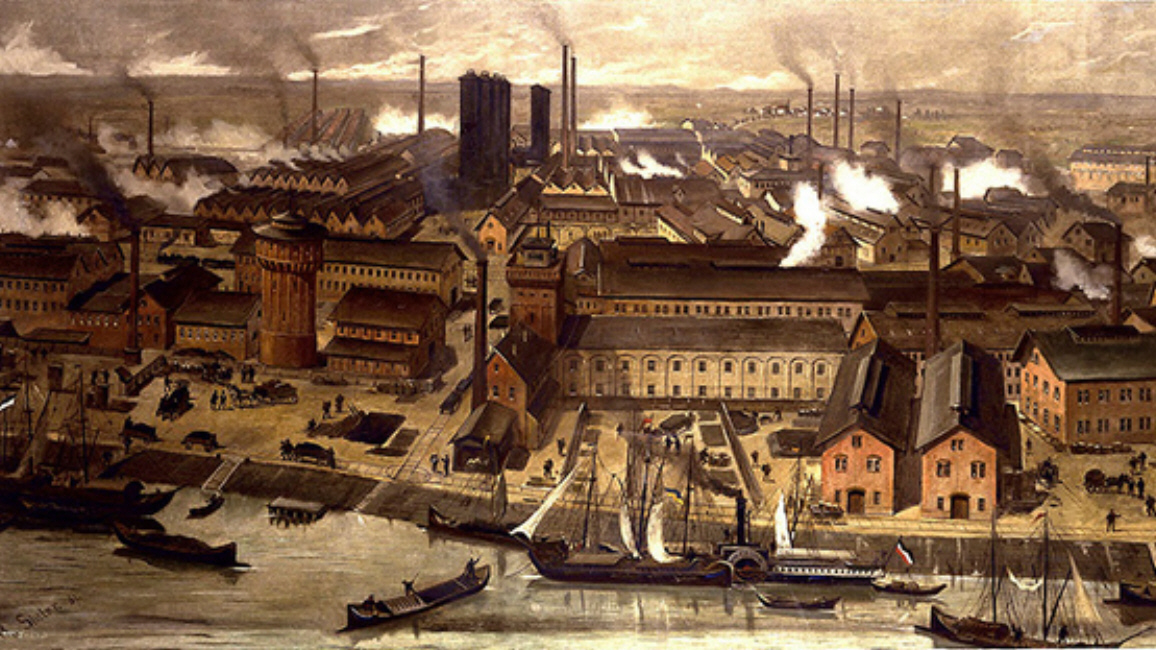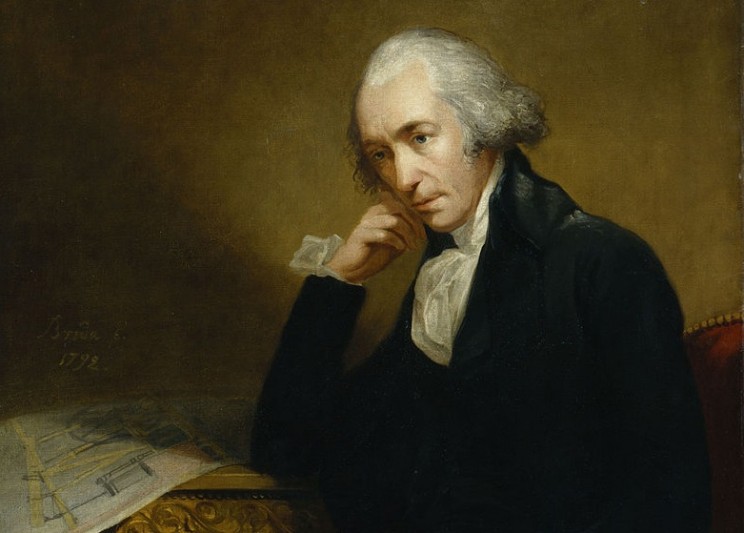ADVERTS
Revolução Industrial: Uma Transformação Histórica que Moldou o Mundo Moderno
A Revolução Industrial representa um dos períodos mais significativos da história da humanidade, marcando uma profunda transformação nos métodos de produção, na organização social e na vida cotidiana das pessoas.

Este momento histórico revolucionou não apenas a maneira como produzimos bens, mas também redefiniu completamente as relações de trabalho e a estrutura das sociedades modernas.
ADVERTS
Surgimento e Contextualização Histórica
O período entre 1760 e 1840 testemunhou uma transformação sem precedentes na história da humanidade. A Revolução Industrial emergiu inicialmente na Grã-Bretanha, estabelecendo um novo paradigma de produção que substituiria gradualmente o tradicional sistema artesanal por um modelo mecanizado e mais eficiente.

A escolha da Grã-Bretanha como berço desta revolução não foi acidental. O país reunia condições únicas que favoreceram este desenvolvimento, incluindo:
- Uma forte tradição comercial e marítima que facilitava o acesso a matérias-primas e mercados consumidores
- Um sistema bancário desenvolvido que permitia investimentos em larga escala
- Abundância de recursos naturais, especialmente carvão mineral
- Estabilidade política e um sistema legal que protegia a propriedade privada
- Uma classe comerciante próspera disposta a investir em inovações
A Revolução das Máquinas e o Papel de James Watt
Um dos marcos mais significativos deste período foi o desenvolvimento da máquina a vapor aperfeiçoada por James Watt. Sua contribuição foi revolucionária não apenas pela invenção em si, mas pelo impacto que causou em diversos setores produtivos. O motor a vapor de Watt, patenteado em 1769, representou um avanço tecnológico extraordinário, aumentando em 75% a eficiência em relação aos modelos anteriores.
ADVERTS
A importância de Watt vai além de suas invenções mecânicas. Como membro ativo da Lunar Society, ele participou de um círculo de pensadores e inventores que se reuniam regularmente em Birmingham para discutir avanços científicos e tecnológicos. Estas reuniões, realizadas estrategicamente durante as noites de lua cheia para facilitar o retorno seguro dos membros, contribuíram significativamente para o desenvolvimento tecnológico da época.
Impactos Sociais e Econômicos
A Revolução Industrial provocou mudanças profundas na estrutura social e econômica das sociedades:
Transformações Positivas
- Aumento significativo na produção de bens manufaturados
- Desenvolvimento de novas tecnologias e técnicas de produção
- Crescimento econômico sem precedentes
- Melhoria nos sistemas de transporte e comunicação
- Surgimento de novas oportunidades de emprego
- Redução nos custos de produtos manufaturados
- Avanços na medicina e diminuição da mortalidade infantil
Desafios e Problemas
- Urbanização desordenada e surgimento de favelas
- Condições de trabalho precárias nas fábricas
- Poluição ambiental e problemas de saúde pública
- Exploração do trabalho infantil
- Desigualdade social acentuada
- Êxodo rural e desorganização das estruturas familiares tradicionais
O Legado para o Mundo Moderno
A Revolução Industrial estabeleceu as bases para o mundo moderno que conhecemos hoje. Suas contribuições continuam influenciando nossa sociedade em diversos aspectos:
Na Tecnologia
O impulso à inovação tecnológica iniciado neste período continua sendo um motor do desenvolvimento econômico. A busca por eficiência e automação, iniciada com as primeiras máquinas a vapor, evolui hoje para a inteligência artificial e robotização.
Na Organização do Trabalho
Os princípios de especialização e divisão do trabalho, embora modificados, ainda são fundamentais na organização produtiva moderna. O conceito de linha de montagem, aperfeiçoado posteriormente por Henry Ford, tem suas raízes neste período.
No Urbanismo
A configuração das cidades modernas, com suas áreas industriais, comerciais e residenciais, foi largamente influenciada pelos padrões estabelecidos durante a Revolução Industrial.
Na Educação
A necessidade de mão de obra qualificada para operar máquinas cada vez mais complexas levou ao desenvolvimento de sistemas educacionais técnicos e profissionalizantes.
Considerações Finais
A Revolução Industrial representa muito mais que uma simples mudança nos métodos de produção. Foi um momento de transformação profunda que redefiniu as relações humanas, a organização social e nossa relação com o trabalho e a tecnologia. Seus impactos, tanto positivos quanto negativos, continuam ressoando na sociedade contemporânea, influenciando debates sobre desenvolvimento sustentável, direitos trabalhistas e inovação tecnológica.
Compreender este período histórico é fundamental para entender os desafios que enfrentamos hoje, como a automação do trabalho, as questões ambientais e a busca por um desenvolvimento econômico mais equilibrado e sustentável. A Revolução Industrial nos ensina que grandes transformações tecnológicas e econômicas sempre trazem consigo profundas mudanças sociais que precisam ser cuidadosamente gerenciadas para beneficiar toda a sociedade.
